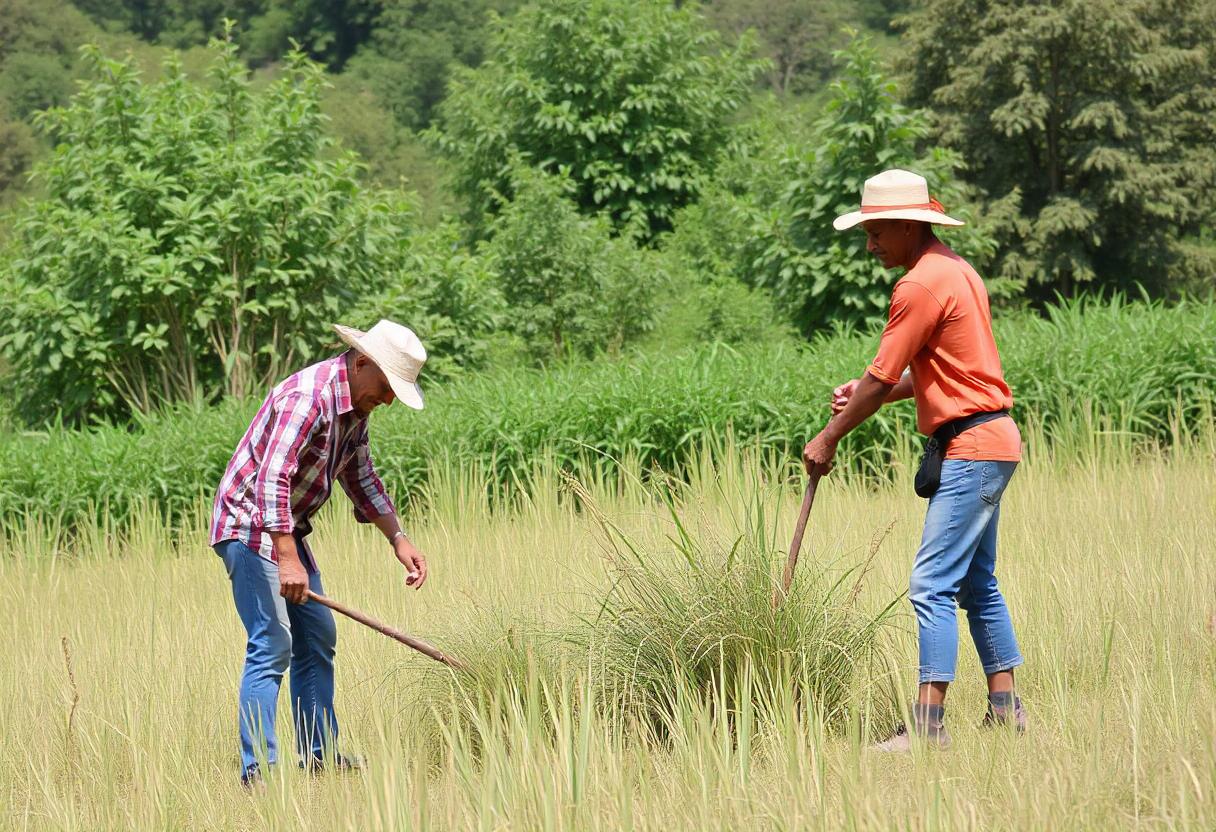
Agricultural research scientists focus on improving farming practices and crop yields through scientific research. They work in laboratories, research centers, and field settings to develop new crop varieties, improve soil health, and optimize pest management strategies. These professionals often hold advanced degrees in agricultural science, biology, or a related field and are skilled in conducting experiments, analyzing data, and applying their findings to real-world agricultural challenges.
Farm Manager
Farm managers oversee the daily operations of farms, including crop production, livestock care, and farm maintenance. They are responsible for managing staff, budgeting, and ensuring that farm activities comply with regulations and best practices. This role requires a combination of agricultural knowledge, business acumen, and leadership skills. Farm managers often have a background in agricultural science or farm management and may also benefit from experience in the field.
Agricultural Engineer
Agricultural engineers design and develop machinery, equipment, and infrastructure to improve agricultural productivity and efficiency. They work on projects related to irrigation systems, farm machinery, and processing facilities. These engineers combine principles of mechanical engineering with agricultural science to create solutions that address the specific needs of the farming industry. A degree in agricultural engineering or a related field is typically required for this role.
Soil Scientist
Soil scientists study the composition, structure, and properties of soil to understand its impact on crop growth and land use. They conduct soil tests, analyze soil samples, and provide recommendations for soil management and conservation practices. Soil scientists play a crucial role in ensuring that agricultural lands are used sustainably and effectively. This position usually requires a degree in soil science, agronomy, or a related field.
Agricultural Extension Officer
Agricultural extension officers work to bridge the gap between research institutions and farmers by providing education and technical support. They offer training sessions, workshops, and one-on-one consultations to help farmers adopt new technologies and practices. Extension officers need strong communication skills and a deep understanding of agricultural practices. A background in agricultural science or a related field is often required for this role.
Crop Consultant
Crop consultants provide specialized advice to farmers on how to manage and improve their crops. They analyze crop health, soil conditions, and pest issues to develop tailored recommendations for fertilizer use, pest control, and crop management. Crop consultants typically have expertise in agronomy or a related field and may work independently or as part of consulting firms that serve the agricultural industry.
Agricultural Economist
Agricultural economists analyze economic data related to agriculture to help farmers, businesses, and policymakers make informed decisions. They study market trends, agricultural policies, and financial aspects of farming to provide insights and recommendations. This role requires strong analytical skills and a background in economics or agricultural economics.
Livestock Manager
Livestock managers are responsible for the care and management of farm animals, including cattle, poultry, and sheep. They oversee feeding, breeding, health care, and overall well-being of the animals. Livestock managers must have knowledge of animal husbandry practices and often have experience working with livestock. This role requires a combination of practical skills and management abilities.
Agricultural Policy Analyst
Agricultural policy analysts research and evaluate policies related to agriculture and rural development. They analyze the impact of existing policies, propose new regulations, and provide recommendations to government agencies, non-profits, and industry stakeholders. This role requires expertise in policy analysis, economics, and a strong understanding of agricultural issues.
Horticulturist
Horticulturists specialize in the cultivation of fruits, vegetables, nuts, seeds, herbs, sprouts, mushrooms, algae, and non-food crops like flowers and grass. They work to improve plant growth, quality, and harvests through research and practical applications. A degree in horticulture or a related field is usually required, and experience in plant care and cultivation is essential for this role.